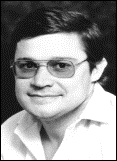Study Philosophy in South AfricaUniversity of Johannesburg South AfricaWhat does the Department of Philosophy offer you?
Prospective students can apply via the Internet (http: //www.uj.ac.za/click on Prospective Student and then on Application Form). Prospective students can apply via the Internet (
http: //www.uj.ac.za/
,
click on Prospective Student and then on Application Form).
You need permission from the department for the masters. Please
fill in the form for permission.
Form
If you have been accepted by the department, you can apply at the
Faculty of Arts (
http: //www.uj.ac.za/
,
click on Prospective Student and then on Application Form).
You need permission from the department for the
doctoral. Please fill in the form for permission. Form
If you have been accepted by the department, you can
apply at the Faculty of Arts (http: //www.uj.ac.za/,
click on Prospective Student and then on Application Form).
Deon Rossouw
(Chairperson)
Professor
in Philosophy
D
Phil
Research
interests:
Deon
Rossouw specialises in the field of Business Ethics. He has
published and taught extensively in this field, and he is the
President of the Business Ethics Network of Africa (BEN-Africa).
Contact
details:
Tel: +27-11-489-2469
Fax: +27-11-489-3326
Hennie Latter
Professor
in Philosophy
D
Litt et Phil
Research
interests:
Prof
Latter's research interests are mainly in political philosophy.
Over the years he has done most of his work on issues of justice.
He is currently involved in a long-term project on justice and poverty.
Contact
details:
Tel: +27-11-489-2734
Fax: +27-11-489-3326
E-mail:
hppl@lw.uj.ac.za
Johan Snyman
Professor
in Philosophy
D
Litt et Phil
Research
interests:
His
interest in issues of modernism and postmodernism in aesthetics
inevitably lead to an exploration of topics such as ideology critique,
the social role and significance of art, and in this context in
particular, the meaning of the Holocaust and of apartheid for the
production of culture. Current research focuses on the theory of
the sublime (Kant, Schiller, Lyotard, Celan), theories of trauma, and
theories of the politics of remembrance.
Contact
details:
Tel: +27-11-489-2729
Fax: +27-11-489-3326
E-mail:
jjs@lw.uj.ac.za
Louise du Toit
Lecturer
in Philosophy
MA
(Philosophy)
Research
interests:
Louise
lectures in the fields of multiculturalism, political ethics,
hermeneutics, feminism and theories of the body. Her main research
theme is the ethical and political implications of sexual difference.
Other interests include the position of women within the world
religions, as well as feminist theology, and feminist readings of
ancient and classic philosophy
Contact
particulars:
Tel: +27-11-489-2727
Fax: +27-11-489-3326
E-mail:
hldt@lw.uj.ac.za
Honours
in Philosophy
The entry
requirement for this program is at least 60% in a first degree with
Philosophy as a major. This
course consists of four sections, each contributing 25%.
Full-time
students do two sections per semester and part-time students one section
per semester.
The department
sets out criteria for selection annually.
You
need permission from the department to enroll for the honours programme.
Section
1 (Research and contemporary philosophy)
This course focuses on philosophical research. The
unique nature of philosophical research, as well as other philosophical
research skills, such as systematic, logical argumentation, the creative
design of own views, and the ability to construct theories, will be
acquired by writing essays on the central themes covered by the
contemporary philosophical texts.
Section
2 (Feminist theory and ethics)
This
course offers an in-depth introduction to, and overview of, the most
important feminist streams of thought. In this course, we will look at
feminist philosophy, methodology, epistemology and ethics. Feminist
analytical techniques will be learnt, so that you will, by the end of
the course, be able to execute feminist or gender sensitive readings of
texts, such as narratives and policy documents.
Section
3 (Ethics)
This
module commences with a brief introduction to some of the profound
questions in moral philosophy. Various reactions to the crisis sparked
in ethics by modernist ethics are then examined in depth. These include
Alisdair MacIntyre's attempt to restore the Aristotelian tradition in
ethics and Charles Taylor's effort to retrieve an Ethic of
Authenticity. Finally the critique on such attempts by post-modern
thinkers, like Jean-Francois Lyotard and Emmanuel Levinas is considered.Lecturer:
Prof GJ Rossouw
Section
4 (Aesthetics)
Review
of premodern, modern and postmodern aesthetics, with special emphasis on
the transition from beauty to the sublime as major focus of aesthetics.
David Hume, Immanuel Kant, Theodor Adorno, Jean-Francois Lyotard.
Lecturer:
Master's
in Philosophy
The
entry requirement for this programme is at least 60% in a honours degree
in Philosophy.
Dissertation
A
dissertation on a topic selected in consultation with the department
must be completed under the supervision of a lecturer in the department.
Ac complete research proposal must be presented for discussion
and approval at a departmental meeting.
You
need permission from the department to enroll for the masters programme.
M
Phil (Ethics)
The
M Phil (Ethics) course is designed to enable persons within private and
public organisations to deal with the ethical dimension of their work.
Persons
with at least 2 years work experience and an honours or four-year degree
equivalent to an honours degree in any discipline can apply for this two
year part-time course.
The course is
ideally suited for persons:
wishing to equip themselves to deal with the ethical dimension of
their work,
pursuing a career opportunity related to the management of ethics
(e.g. ethics officer, ethics custodian, ethics auditor),
ïdesiring to enrich themselves intellectually and morally within
their existing work roles.
Course
outline
The
course consists of four sections. Modules.
Modules 1 and 2 are completed in the first year whilst Modules 3
and 4 are completed in the second year.
MODULE
1: HISTORY OF ETHICS
Discover
how very novel and innovative some of our moral notions are in their
original context: the Ancients (Plato and Aristotle), the Moderns (Kant,
Marx, Mill), the Postmoderns (Habermas and Levinas). Notions such as the
ideal good, virtue and friendship are explored and compared to duties,
the greatest good and the good according to a social class, the good as
communication free from coercion and the face of the other as icon of
the good.
MODULE
2: BUSINESS ETHICS
Learners
will be introduced to basic concepts and relevant theories in the field
of business ethics. Armoured with these intellectual tools we will then
critically explore recent conceptions of the role of business in
society. Various moral dilemmas that organisations inevitably have to
face will be unpacked. This will lead us into the terrain of moral
decision-making and strategies for dealing with moral dilemmas. Finally
the quest for moral standards on a global and diverse economic landscape
will be critically investigated.
MODULE
3: GENDER AND RACE at WORK
In
this course we will follow a critical race and gender theory approach.
We look at ways in which difference and identity are constructed,
deconstructed and reconstructed with regard to race and gender, and to
some extent also class. Different sexual identities as well as
their stereotypical representations will be analysed, including
femininity and masculinity, and gay and lesbian identities, as well as
how they inter-link with race and class. The
'difference and
equality'
debate within the critical social sciences will frame our
analysis of the South African workplace.
MODULE
4: JUSTICE AND DEMOCRACY AT WORK
In
the first part of this course learners will discuss different
conceptions of justice and democracy to enable them to develop an
independent view of each. In the second part of the course
conceptions of justice and democracy are applied to a variety of case
studies drawn from the workplace. Learners will be encouraged to
present cases from their own experience. They will have to
demonstrate the value of their conceptions of a democracy through
applying them to at least three case studies.
Course
format
Within each
module there are a minimum of two-contact session of two days each
(on Fridays and Saturdays).
A research
essay relevant to your work experience is required within each of the
four modules.
Study guides
are available on-line and assignments can be submitted on-line as well.
Doctoral
degree
The
entry requirement for this degree is at least 60% in a Masters degree in
Philosophy. A thesis is
completed on a topic chosen in consultation with the chairperson of the
department and written under the supervision of a lecturer. Four
seminars and a doctoral examination are required in accordance with the
general regulations of the Faculty of Arts.
In
order to be accepted for the Doctoral study, the student must show proof
of accomplishment concerning research methodology and the History of
Philosophy. Supplementary oral examinations might be required.
You
need permission from the department to enroll for the doctoral programme. Closing
date for applications is 15 October.
Application forms available at:
http: //www.uj.ac.za/
Request Information:
Subject:
Name: *
Address:
Telephone:
Created by
Contact
Form Generator
|
| ||||||||||||||||||||||
PO
Box 524
Auckland
Park
2006
South
Africa
Tel
E-mail:
aj@lw.uj.ac.za
Fax:
+27-11-489-3326
Website:
http: //www.uj.ac.za/



 texts.
texts.